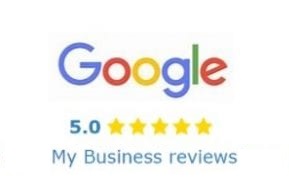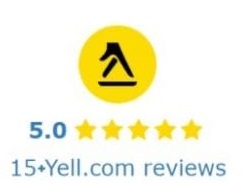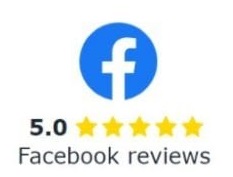FAQ
FAQs (Frequently Asked Questions) help customers find more information about company services and how products work.
Energy4 is here to help business customers. Due to many FAQs information requests being asked by Business customers, Energy4 has formulated the following Frequently Asked Questions page to assist business customers further.
Please review our Frequently Asked Questions information below. Please contact Energy4 by Telephone 01256643634 – South Office & 01642888814 – North Office or by Email for further questions?
Frequently Asked Questions (FAQs) are lists of common questions and their concise answers about a specific topic, product, or service, designed to provide quick, self-service information and reduce direct inquiries, saving time for both users and providers by addressing the most common needs upfront. They act as a valuable knowledge base, guiding users and clarifying important points efficiently.
FAQ stands for Frequently Asked Questions, and an FAQ page on your website is an organized collection of valuable information that your customers ask about your products and services. This page is a useful way to organize information that your customers often ask. FAQ pages can offer lots of benefits, including:
Improve your customer’s experience.
Provide quick information to help customers make a purchasing decision.
Reduce the time your employees need to answer simple questions.
FAQs FAQs FAQs FAQs FAQs FAQs FAQs FAQs FAQs FAQs
Get In Touch
Opening Hours: 8:00 – 17:00 Mon to Saturday
Call Energy4 Today For A Quote
01256643634 – South Office
01642888814 – North Office
Email: contact@energy4.co.uk
Contract Form: Contact Energy4 today – click here
Please provide the best date and time of day that we should contact you.
By submitting your details you agree to Energy4 T&C’s and Privacy Policy
Contact Us At Energy4 Today
For business electricity, gas, water, and telecom’s advice
We will call or call us on 01256643634 – South Office & 01642888814 – North Office to get a quote now. Guaranteed good quotes to all our business customers, saving you money
What Is A FAQ Page?
A great FAQ page is one of the most important elements of your business website. While your company needs to have great content and clean architecture to provide a great user experience. Your site FAQ section will draw most of your traffic and convert more customers.
FAQ pages are an integral part of good navigation and the customer journey for most websites. This section of your site is the go-to area for your audience who want to learn more about your business and find out why your products and services are what they want.
Whenever someone clicks on the FAQ page you know, they in your business. For many people, the website FAQ page is the second page they go to after the Home or Services pages. Instead of guessing what topics you should cover, you can use several online marketing tools for small business to help you understand the needs of your customers. This is a great way to optimize your Frequency Asked Questions page before spending a lot of time or resources on the task.
For many people, the website FAQ page is the second page they go to after the Home or Services pages. Your FAQ section needs to include high-quality content that will help your customers understand your products and services quickly.
This means that your FAQ page can play a central role in driving your audience to paying customers. It is a good idea to invest in high-quality content for your FAQ page to ensure that your content converts and helps your business reach your goals.
Along with the technical questions and answers, your FAQ section will establish you as an authority in your industry. The FAQ page shows that you know so much about your products and services that you can answer questions before they are even asked!
You can also use your FAQ page as a form of social proof because your business can establish your website as a valuable asset to drive sales.
Finally, your website Frequency Asked Questions page will reduce a lot of stress from your customer service department. Instead of fielding a large volume of accessible to answer questions. Your business should promote your FAQ page to your clients as their go-to source of information about your business.
Could You Use An Extra 1,377 Monthly Visitors?
Wondering how an FAQ page can help your company? Check out the full case study to see how our website copywriting & content marketing helped Export Solutions today!
The Main Benefits Of Your FAQ Page Explained
Along with being a central location of your website, your visitors will go to your FAQ page if they want to learn more about your products and offerings.
Since your Frequency Asked Questions section will be the highlight of your website, you should link to product pages from the FAQ page. This will help your internal linking strategy and spread the benefits of a great SEO strategy to other areas of your website.
1. Your FAQ Help You Address Your Reader’s Needs
If you want to increase the usability of your site, improve your business authority, and increase conversions, then you need to have an excellent FAQ section. Think of your FAQ page as the main hub that your customers can go to with their questions.
One of the strongest reasons to have a FAQ section is to address the needs of your readers. Since your customers that they want more information about your products and services by going to your FAQ page. You should provide high-quality content about your business on the FAQ page.
The best thing you can do to overcome objections and increase sales is to provide accurate information to address questions your customers might be asking. Instead of allowing uncertainty to prevent a sale, you can use their items as fuel to establish your business as an industry leader and drive more conversions.
2. Establish Your Business As An Expert
Whenever you ask someone a question, you are seeking their advice because you view them as experts This same thing occurs when your customers ask you questions about your product and services. Since your customers want to know information about issues that your business knows about, you can use your FAQ section as a way to establish your business as a trusted expert.
Whenever your audience asks you questions about your business, you can establish yourself as an expert by answering their questions with great information.
Your competition is working to draw your customers to them, so you should do everything you can to establish yourself as a trusted expert. Providing excellent answers to the questions your customers are asking is the best way for you to be a reliable source.
Use your FAQ section to help your business earn the trust of your customers. You can use your FAQ section as the first touchpoint with your customers where you can direct your customers to begin the relationship that will convert them into paying customers.
3. Improve Your Sales
If your business has an optimized FAQ section on your website, then you will see an increase in conversions since the percentage of visitors on your website will buy your products and services.
However, having an FAQ page with miscellaneous information won’t do the trick.
Your FAQ page needs to be tailored to the specific needs of your customers. In addition to having focused content, you should have links from your FAQ page to your product pages and online shop.
More advanced tactics for a FAQ page is to compare your products and services to those of your competition. This will give you a natural way to show the advantages of your business compared to your competition.
4. Boost Your Search Engine Optimization
Search engines love FAQ pages because they provide relevant content to help Google understand your business.
This means that you need lots of good content to help your business get found in search engines. Your website’s FAQ page is the perfect place to publish lots of interesting information about your business, products, and services.
You can also leverage your FAQ page to include long-tail keywords that your customers are searching for. Since you are already providing information about your business, you can add keyword-rich content so when someone searches for your products and services they will find your FAQ page.
The questions and answers you include on your FAQ page will on the user personas that you have to build to represent your customers. As you continue to develop more answers for this section, you will find this page will rank high in search engines.
This is why you should include specific and detailed questions on your FAQ page. This section should contain relevant information about your business so you can get picked up in search engines like Google and Bing.
A Few Tips For Writing Your FAQ Page
To write a great FAQ page, you will need to know what your customers are asking most often. You should think about whether your clients ask about individual features and unsure about some technical aspects of your products and services.
If your clients ask about your features, then you can provide accurate answers in your FAQ section and build out that information on the product pages.
Your FAQ page should complement information that exists elsewhere on your site. This approach will help your website rank for that information, and save you time producing the FAQ page since the content exists on your product pages.
Your Boring Content Is Losing You
Need website content on a budget? We deliver the copywriting you want at a price you can afford!
Since your visitors will be consuming your content on different devices and in specific ways you need to create your FAQ section to be displayed in various forms. Here are some ideas to help you write compelling FAQ content that can also be scanned and answers found.
Put yourself in your customer’s shoes to figure out what questions or problems they might experience. Provide in-depth and valuable solutions to these issues.
Your answers to the FAQs should be informative to give insight about your business, the products and services, and always point back to benefits and value. Be concise enough to offer information that is necessary but doesn’t be too wordy because you don’t want to lose your customers as they are asking questions about your company.
Format your content for easy consumption as needed. Your content should be easy to scan. You can use bullet points and short paragraphs to help your readers consume your content.
Be sure to double-check your information. Your FAQ sections need to be accurate especially if you are writing about technical topics.
Organize your questions and answers in similar groups. Your customers want to find answers.
How We Build A Great FAQ Page For Our Clients
We have already discussed why an FAQ page is important for your website, but I think it’s important to look at how you can build an FAQ page that gets you found in search engines and drives qualified leads.
One of the first things to remember when building an FAQ page is that you are trying to provide answers to specific questions that your customers have. Your answers should be educational in nature, but you should also make your answers lean towards getting your customers to engage with you and convert. This is in their best interest, and you can encourage them to interact with you by providing the answers they are looking for and setting yourself up as an authority in the market.
We did this exact thing for Export Solutions with their Import & Export Compliance FAQ page. Prior to our updates, this FAQ page was bare bones and not very helpful to readers. This resulted in low Impressions and nearly zero clicks- neither are good for their business. We took a thorough approach to update the page and here are some elements that we considered when building the page:
We used real questions. Our team looked through contact forms and listened to voicemail messages from actual customers to find out what people were asking about different aspects of trade compliance. In addition to listening to customers, we also used different tools to find other questions that mattered to Export Solutions customers.
We categorized questions into groups. After we got done scouring contact forms and listening to dozens of voicemails, we set out to organize the questions into five large groups. Each of these groups contained questions related to the main topic, and each group of questions relating to a service that Export Solutions offers.
We sent the questions to experts for answers. We are not experts in trade consulting, so we sent the questions with direction to the team at Export Solutions. We asked their team to provide a 150-200 word response to each question. This part of the process ensured that the FAQ uses correct information to address customer questions.
We added an intro to each FAQ section. We wanted to help the content get found in search engines so we added a 1-2 paragraph intro to each FAQ section. This information provides general insight to what each section will cover, why it is important, and who the answers are fo.
We added links to blog posts and service pages. We knew that the FAQ page will get lots of traffic, so we wanted to extend the value of the FAQ page for Export Solutions. To do this we added a link to relevant blog posts and service pages when appropriate. Doing this improved the flow of information throughout the site, and these links provided the customer with a way to learn more about the topic and reach out to the Export Solutions team.
Add lots of CTAs throughout the page. Since the FAQ page will get lots of traffic from customers seeking specific answers, we wanted to give customers a great reason to reach out to the Export Solutions team. We added several CTA buttons and forms on the page to attract clicks and engagement.
Improve Your Website With A Great FAQ Page
Many businesses bury their FAQ section at the bottom of their website, and this makes it difficult to for your customers to find. If your audience can’t find your FAQ page, then they can’t find the answers they want to make a sale from your website.
Since the FAQ page is also an excellent way to rank in search engines your business needs to ensure you use long-tail keywords and real-life questions to draw qualified leads. Not only will this help Google find your content, but it will also establish you as a leader in your industry.
This new level of trust will contribute to drive your audience towards a purchase and help you reach your sales goals!
If you are ready to drive more online sales with a professional website copywriter, then shoot me an email today! I will work with you to understand your audience and write compelling copy that will get your business more online sales!
FAQs FAQs FAQs FAQs FAQs FAQs FAQs FAQs FAQs FAQs FAQs FAQs





